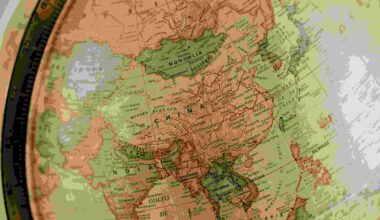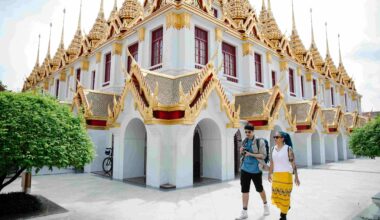Interested in medical visa to India? Here are application steps, requirements, costs, and top hospitals for affordable treatment.
In recent years, India has grown into one of the world’s leading destinations for medical tourism.
People from across Africa, the Middle East, and even Europe travel there not just for sightseeing, but for healing.
India has earned a global reputation for its high-quality healthcare, experienced doctors, and surprisingly affordable treatment options.
From heart surgeries and kidney transplants to cosmetic procedures and fertility treatments,
Thousands of international patients arrive each year seeking the best care at a fraction of what it would cost in countries like the United States or the United Kingdom.
For many Nigerians, the journey goes beyond getting well, it’s about finding hope, recovery, and compassion in a country known for its hospitality and advanced medical technology.
What makes India even more attractive is that its hospitals combine modern equipment with holistic healing traditions.
You will find top surgeons working alongside Ayurveda specialists, offering patients an all-round recovery experience.
But before setting off on this journey, one essential requirement is needed which is obtaining a medical visa to India.
Understanding What a Medical Visa to India Is
A medical visa to India is a special travel authorisation issued to foreigners who wish to undergo medical treatment in recognised and accredited hospitals across the country.
Unlike a regular tourist visa, which limits your stay and activities to leisure or sightseeing.
The medical visa specifically allows you to enter India for healthcare related purposes.
It’s designed for patients who need specialised medical procedures such as heart surgery, organ transplants, neurosurgery, joint replacement, and cancer therapy among others.
This visa ensures that the Indian government can track and assist international patients, while hospitals can plan care safely and legally.
The visa is granted for up to six months, but depending on your treatment plan, it can be extended if your doctors recommend more recovery time.
Many patients are also allowed to bring along their family members under a Medical Attendant Visa, which ensures emotional support throughout the treatment journey.
This kind of visa is a bridge between countries, cultures, and lives, connecting those in need with India’s world-class healthcare infrastructure.
Who Qualifies for a Medical Visa to India
Eligibility for a medical visa to India depends on the purpose of your travel and the nature of your medical needs.
The Indian government has made the process clear and accessible, but it’s strictly regulated to ensure that genuine patients benefit.
To qualify, you must be seeking medical treatment in a recognised or specialised hospital in India.
The visa is open to foreign nationals who require treatments such as organ transplants, cardiac surgery, neurology, cosmetic surgery, fertility treatment, or oncology (cancer therapy).
Patients must present a medical recommendation or referral letter from a hospital in their home country.
It will confirm that similar treatment is either unavailable or too expensive locally.
The authorities also consider the patient’s health condition and the seriousness of the ailment.
Emergency cases are given priority.
Furthermore, proof of funds is often requested to ensure you can cover medical costs and living expenses while in India.
For many Nigerians and other foreigners, this visa has opened the door to life-saving medical procedures that were once out of reach,
And this makes India not just a travel destination but a symbol of affordable hope.
Step by Step Process of Getting a Medical Visa to India
Getting a medical visa to India can be straightforward if you follow the right steps.
Here’s a detailed breakdown to guide you through
1. Contact an Accredited Indian Hospital
Start by reaching out to an Indian hospital that specialises in your required treatment.
Many hospitals such as Apollo Hospitals (Chennai), Fortis Healthcare (New Delhi), Medanta The Medicity (Gurgaon), and Manipal Hospitals (Bangalore) have international patient departments.
They will evaluate your medical reports and issue a medical invitation letter, a document you’ll need for your visa application.
2. Complete the Online Visa Application Form
Visit the official Indian Visa Online Portal. Choose the Medical Visa option and fill in your details accurately.
This includes personal information, passport details, and the hospital invitation. Ensure every field matches your passport records to avoid delays.
3. Gather and Submit Required Documents
Print your application form and attach supporting documents such as your medical reports, invitation letter, proof of financial means, and flight details.
Submit these at the Indian High Commission or Visa Application Centre in your country.
For Nigerians, it’s usually through the Indian High Commission in Abuja or the Consulate in Lagos.
4. Attend the Biometric Appointment if required
Depending on your country, you might be asked to provide fingerprints and a photo at the visa centre.
This helps verify your identity and strengthens security.
5. Pay the Visa Fee
Visa fees usually range between $80 and $120, depending on nationality and processing speed.
Payment can be made online or in person at the application centre.
6. Wait for Approval
Processing time usually takes three to five working days.
In some urgent cases, medical visas can be fast-tracked within 48 hours, especially when supported by hospital confirmation.
7. Receive Your Visa and Plan Your Trip
Once approved, you’ll receive your visa sticker or e-visa confirmation.
Book your flight, arrange accommodation, and prepare for your journey to India for treatment and recovery.
Documents Required for a Medical Visa to India
Before you apply, it’s vital to prepare all your documents properly. Missing even a single form can delay approval.
Here are what you will need.
• Valid Passport
Your passport must be valid for at least six months beyond your date of arrival in India and should have at least two blank pages for stamping.
• Recent Passport-Sized Photographs
Usually two recent, clear photos with a white background are required.
They must match the specifications on the application portal.
• Hospital Invitation Letter from India
This is one of the most important documents.
It should come from a recognised Indian hospital confirming your treatment plan, estimated costs, and expected duration.
• Medical Reports from Your Home Country
Attach medical records that outline your diagnosis and recommendation for overseas treatment.
It helps Indian authorities and hospitals evaluate your case.
• Proof of Funds
Show evidence that you can afford the medical treatment and your stay in India.
This may include bank statements, sponsorship letters, or insurance coverage.
• Proof of Residence and Return Plans
Authorities want assurance that you will return home after treatment.
This could include your return ticket or an employment letter from your home country.
• Completed Application Form and Fee Receipt
Finally, include your visa application form printout and payment receipt. Keeping copies of everything is wise for easy reference.
Cost of a Medical Visa and Estimated Treatment Expenses
When compared to Western nations, India offers some of the most affordable medical care in the world.
The cost of the medical visa to India is modest, ranging between $80 and $120, depending on nationality and processing speed.
Multiple entries are often allowed, meaning you can travel back and forth if needed for follow-up appointments.
In terms of treatment, India’s medical sector offers transparent pricing that varies by hospital and procedure.
For example, a heart bypass surgery that may cost over $25,000 in the United States could be around $6,000–$8,000 in India.
Knee replacement surgery costs roughly $6,000–$7,000, and IVF fertility treatments can be as low as $3,000 per cycle.
When you add affordable accommodation, English-speaking medical staff, and the cultural warmth of Indian hospitality, it makes India a preferred healthcare destination.
Validity, Extension, and Attendant Visa
A medical visa to India is typically issued for six months, with three entries allowed.
However, the duration can vary depending on your treatment plan. Some patients require longer stays.
And the visa can be extended through the Foreigners Regional Registration Office (FRRO) in India upon a doctor’s recommendation.
If you’re travelling for surgery or long-term treatment, you may bring along one or two close family members under a medical attendant visa.
This visa is directly linked to the patient’s medical visa, ensuring the attendants can stay in India for the same duration as the patient.
Having family nearby offers emotional comfort and makes communication with hospital staff easier.
Extensions can also be granted for attendants if the patient’s treatment takes longer than expected.
Tips for a Smooth Medical Journey to India
Travelling abroad for healthcare can be overwhelming.
These practical tips will make your medical journey to India smoother and more rewarding.
1. Research Your Hospital Thoroughly
Before choosing a hospital, check reviews, accreditation, and success rates.
Institutions like Apollo, Fortis, and Medanta are accredited by JCI and NABH, ensuring world-class standards.
2. Keep All Documents Organised
Create a folder for your passport, visa, invitation letter, and medical reports.
Having copies, both digital and printed, saves time at airports and hospitals.
3. Arrange Accommodation Near the Hospital
Staying close to your hospital makes follow-up appointments easier. Many hospitals have tie-ups with nearby guesthouses or serviced apartments.
4. Learn Basic Indian Etiquette
A few words in Hindi such as Namaste or Dhanyavaad can go a long way in building rapport.
Indians value politeness and warmth.
5. Consider Travel Health Insurance
Even though medical care is affordable, having insurance that covers emergencies provides peace of mind during your stay.
6. Prepare for Cultural Differences
Food, weather, and traffic might be different from what you’re used to. Be patient, stay open-minded, and focus on recovery.
7. Stay in Touch with Your Embassy
Register your stay with your country’s embassy or high commission in India. It’s a useful safety measure during emergencies.
Popular Cities and Hospitals for Foreign Patients in India
India’s healthcare infrastructure spans across major cities, each offering unique medical expertise and hospitality.
Here are some of the top destinations.
Chennai – The Health Capital of India
Chennai is famous for its advanced heart and eye care facilities.
Apollo Hospitals, MIOT International, and Global Hospitals attract patients from across Africa and Asia.
The city’s calm environment and lower living costs make it ideal for recovery.
New Delhi – The Hub of Multispeciality Hospitals
As the capital, Delhi houses some of the most sophisticated medical institutions such as Fortis Escorts Heart Institute and BLK Super Speciality Hospital.
Patients seeking oncology, neurology, and orthopaedic care often prefer Delhi.
Mumbai – Leading in Cosmetic and Cardiac Care
Mumbai’s hospitals like Kokilaben Dhirubhai Ambani Hospital and Jaslok Hospital are known for cosmetic surgeries, cardiac procedures, and organ transplants.
The city also offers a multicultural atmosphere and international-standard facilities.
Bangalore – Known for Technology and Medical Innovation
Bangalore blends innovation with healthcare excellence.
Manipal Hospitals and Narayana Health offer robotic surgery, paediatrics, and cardiovascular care using cutting-edge technology.
Gurgaon – The Modern Healthcare Hub
Just outside Delhi, Gurgaon is home to Medanta The Medicity and Artemis Hospital, both renowned for modern infrastructure and specialist care.
Gurgaon’s clean environment and modern hotels make it perfect for recovery.
Conclusion
India’s healthcare system has evolved into a global lifeline for patients seeking quality and affordability.
For thousands of international patients, travelling for treatment is not merely a medical trip, it’s a journey of renewed hope.
The medical visa to India simplifies the process of enabling patients to access life-saving care from expert professionals in internationally recognised hospitals.
If it’s the peaceful recovery wards of Chennai, the advanced operation theatres of Delhi, or the compassionate nurses in Mumbai, India’s healing touch continues to inspire trust and comfort across continents.
From consultation to cure, the medical journey to India remains one of the few places where world-class treatment meets cultural warmth and affordability.
Similar Post






